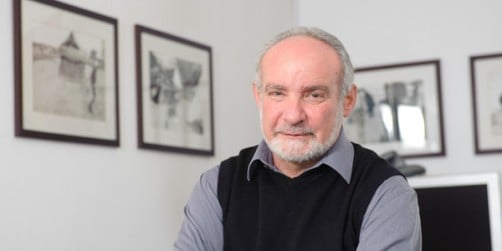A significant global health initiative has emerged with the establishment of the Africa Task Force on Brain Health, aimed at addressing the rising challenges of dementia across the continent. South African academic, Professor Stephen Tollman, who leads the SAMRC/Wits Rural Health Transitions Unit, has been invited to join this task force organized by the Davos Alzheimer’s Collaborative. Projections indicate that by 2050, more than one million individuals in South Africa will be living with dementia, a figure comparable to the entire population of Nelson Mandela Bay.
The task force’s efforts coincide with alarming statistics predicting that Africa will face an unprecedented increase in neurodegenerative diseases as its population ages. The collaborative has recently published an article in the highly regarded journal Nature Medicine, highlighting the connection between brain health and economic resilience. This initiative is encapsulated in an ambitious five-year framework known as the 6×5 plan, which aims to enhance Africa’s preparedness for these challenges.
Professor Tollman emphasizes the importance of integrating brain health into various societal sectors. “Brain health runs through every stage of life and every sector of society,” he stated. “If we integrate it into what Africa is already doing well, we can protect our ageing citizens and sustain our economies.” The implications of cognitive decline extend beyond individuals, affecting families and workplaces, and highlighting the urgent need for a coordinated response.
Six Priorities for Brain Health in Africa
The 6×5 plan identifies six immediate priorities that the continent must address within the next five years. These priorities are supported by specialized task forces made up of experts from various regions across Africa.
The first priority focuses on enhancing brain health advocacy and literacy, which includes efforts to challenge the stigma surrounding dementia. The second calls for the recognition of brain health as a critical driver of socioeconomic transformation. Understanding that cognitive resilience is fundamental to productivity and innovation is vital for economic growth.
The third priority aims to utilize existing healthcare resources, such as immunization programs and community health workers, to facilitate dementia detection and care. Many current prevention initiatives targeting hypertension, diabetes, and obesity can also benefit cognitive health.
The fourth priority emphasizes the need to break down data silos by harmonizing and sharing information across countries, ensuring that policy decisions are based on accurate burden estimates. The fifth highlights the potential of Africa’s mobile revolution, advocating for the use of digital health tools and artificial intelligence to provide affordable, widespread cognitive health screening.
Finally, the sixth priority calls for sustainable funding, advocating for the integration of brain health into universal health coverage and national development goals. “Africa can realize this plan, using much of what it already has,” said Professor Tollman.
Research and Insights from Agincourt
The SAMRC/Wits-Agincourt Research Unit, strategically located near the Kruger National Park and southern Mozambique, has been conducting health and socio-demographic surveillance for over thirty years. Through the Health and Ageing in Africa: Longitudinal Studies in South Africa (HAALSI) program, researchers are documenting the experiences of adults aged 40 and older in resource-limited settings.
Recent studies have validated a range of cognitive assessment tests designed to establish norms in cognitive function. These tailored assessments aim to track cognitive changes, assess the extent of dementia, and identify risk factors such as physical diseases and social networks that can influence cognitive health.
The unit’s findings also demonstrate how brain health intersects with cardiometabolic diseases, HIV, and social determinants throughout the life course. Rapidly changing communities, such as those in Agincourt-Bushbuckridge, are experiencing increasing rates of hypertension, diabetes, and other health issues that pose risks for dementia.
Professor Tollman asserts that brain health is cultivated throughout life, beginning with maternal and child health, advancing through education, and requiring ongoing support in later life. The 6×5 plan offers a practical roadmap for addressing these critical health challenges over the next five years.
The Davos Alzheimer’s Collaborative believes that Africa possesses the necessary evidence, infrastructure, and partnerships to implement these strategies effectively. With concerted effort, the continent can transform the narrative around aging from one of vulnerability to one of resilience, positioning itself as a leader in innovative, community-driven approaches to brain health.



































































